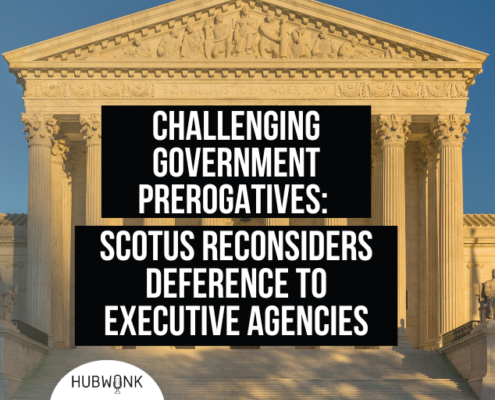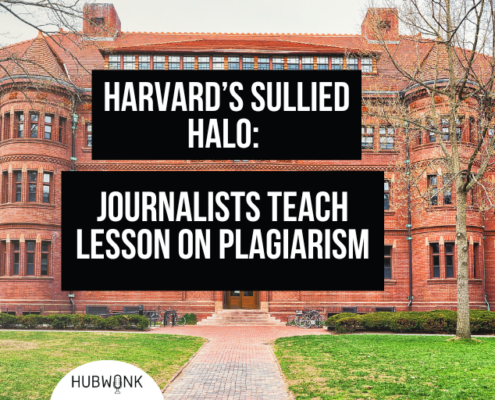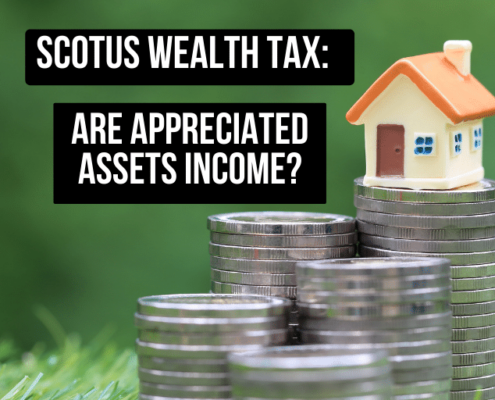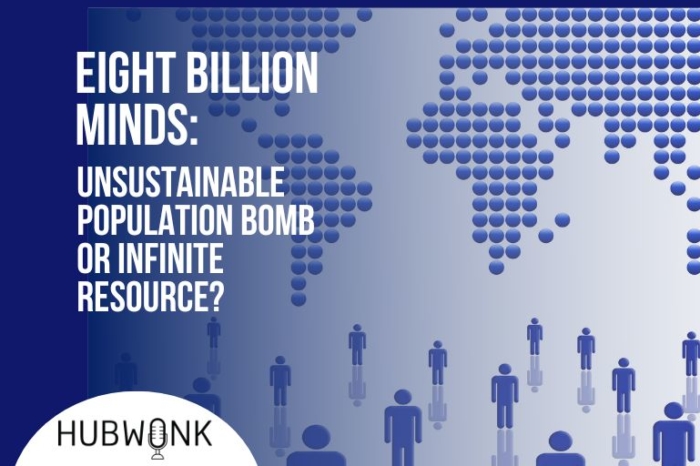Eight Billion Minds: Unsustainable Population Bomb or Infinite Resource?
/in Economic Opportunity, Featured, Podcast Hubwonk /by Editorial Staff
Hubwonk host Joe Selvaggi talks with Cato Scholar and author Marian Tupy about his new book, Superabundance: The Story of Population Growth, Innovation, and Human Flourishing on an Infinitely Bountiful Planet, focusing on the contrast in policy perspectives between those who see humans as consumers of finite resources and those who recognize the unlimited potential of human ingenuity.
Guest:
 Marian Tupy is the editor of HumanProgress.org, a senior fellow at the CATO Institute’s Center for Global Liberty and Prosperity, and coauthor the Time Abundance Index. He specializes in globalization and global well-being and the politics and economics of Europe and Southern Africa. He is coauthor of Ten Global Trends Every Smart People Should Know: And Many Others You Will Find Interesting. His articles have been published in the Financial Time, the Washington Post, the Los Angeles Time, the Wall Street Journal, The Atlantic, Newsweek, the UK Spectator, Foreign Policy, and various other outlets in the US and overseas. Tupy received his BA in international relations and classics from the University of Witwatersrand in Johannesburg South Africa, and his PhD in international relations from the University of St Andrews in Great Britain.
Marian Tupy is the editor of HumanProgress.org, a senior fellow at the CATO Institute’s Center for Global Liberty and Prosperity, and coauthor the Time Abundance Index. He specializes in globalization and global well-being and the politics and economics of Europe and Southern Africa. He is coauthor of Ten Global Trends Every Smart People Should Know: And Many Others You Will Find Interesting. His articles have been published in the Financial Time, the Washington Post, the Los Angeles Time, the Wall Street Journal, The Atlantic, Newsweek, the UK Spectator, Foreign Policy, and various other outlets in the US and overseas. Tupy received his BA in international relations and classics from the University of Witwatersrand in Johannesburg South Africa, and his PhD in international relations from the University of St Andrews in Great Britain.
Get new episodes of Hubwonk in your inbox!
WATCH:
Read a Transcript of This Episode
Please excuse typos.
Joe Selvaggi:
This is Hubwonk. I’m Joe Selvaggi.
Joe Selvaggi:
Welcome to Hubwonk, a podcast of Pioneer Institute, a think tank in Boston. How should we greet the news that on November 15th, 2022, the world’s population reached 8 billion people for generations? Our concerns about the growing world population were based on dire predictions such as those of biologist Paul Ehrlich, whose 1971 highly influential book, population bomb bluntly, asserted that quote, we can’t continue to grow forever on a finite planet. Going further to contend that quote, the biggest problem we face is the continued expansion of the human enterprise. However, 50 years later, with a global population twice that of 1971, the availability of essential resources as measured in their real price decline has steadily increased. Indeed, by any measure, the imminent scarcity suggested by a finite planet seems to be moving further away beyond the horizon of our world of global abundance. What accounts for the disconnect between the former certainty that population growth is unsustainable and the observable reality that resources have never been more plentiful?
Joe Selvaggi:
My guest today is Marian Tupy, editor of humanprogress.org, senior fellow at the Center for Global Liberty and Prosperity, co-author of the Simon Abundance Index and co-author of the recently released book, Super Abundance, the Story of Population Growth, innovation, and Human Flourishing on an infinitely Bountiful Planet. Mr. Tupy will share with us how, where, and when mankind broke from those constraints that naturally bind the populations of all other living organisms. He’ll explain the implications and the power of the idea that our future prosperity lies in the unlimited resources of human ingenuity. Contrary to the ubiquitous narrative of human population, unsustainability, Mr. Tupy will describe how a finite planet in the hands of an increasing number of human minds creates the potential or an infinitely abundant future. When I return, I’ll be joined by scholar and author Marian Tupy.
Joe Selvaggi:
Okay, we’re back. This is Hubwonk. I’m Joe Selvaggi, and I’m now pleased to be joined by the editor of Human progress.org, senior fellow at the Center for Global Liberty and Prosperity, and co-author of the Simon Abundance Index at Cato and co-author of the recently released book, superabundance The Story, population Growth, innovation, and Human Flourishing on an infinitely bountiful planet. Marian Tupy, welcome to Hubwonk, Marian, thank you very much for having me. Well, I’ve been excited for this conversation. I’m a big fan of your work big fan of human progress. And for what it’s worth now, it’s the holiday season. I’m giving your earlier book the Global Trends, every Smart Person, 10 Global Trends, every Smart Person Should Know I’m giving them as Gift Christmas gifts. So I’ll lay that out there for our listeners to know that this is not a an unbiased in interpretation of, of your work. Thank you. So let’s, let’s start with your book. It’s superabundance. I think it’s both a provocative, perhaps maybe a confusing title for some. Let’s start with two, two concepts, right in the title Superabundance and the fact that we live on an infinitely bountiful planet. So what is superabundance?
Marian Tupy:
Superabundance has a technical meaning. We measure abundance. We don’t measure scarcity. We measure abundance in a sense of how much more stuff can people buy per hour of labor and the, the, and abundance can grow at a different rates. So, in, in, in our framework, we always ask how fast is the population growing and what is happening to abundance? Essentially the, the, the, the view that we are attacking is that with increase of population, things are go going to become less abundant. And looking at hundreds of different commodities going back all the way to 1815, in some cases, we see that all of them are increasing in abundance. Nothing is becoming less abundant. Everything is becoming more abundant. But when abundance is growing at lower rate than population growth, we just call it abundance. When, when, when abundance is growing at a faster rate than population, we call that superabundance.
Marian Tupy:
So if the population of the world, or population of the country is growing, say at 2%, but abundance is growing at three or 4%, we call that superabundance because abundance is increasing at a faster pace than population. And that’s important because if population is growing at 2%, but superabundance is grow or, or abundance is growing at three or 4%, that tells us that gap tells us that humans are producing more than they are consuming. That tells us that every new human being that comes into the world comes not only with an empty stomach, but also with a brain capable of increasing wealth for, for everybody else.
Joe Selvaggi:
Well, I can hear in our audience already, a gasp is saying, okay, listen are are you confronting a reality? We all are either professional or amateur economists, the premise there is infinite demand, limited resources. How could it be that the more people we have, the more stuff we’re consuming, given we have a finite planet, we’re hurling through space on this big blue marble. How is it that the more stuff, the more people we have, and the more stuff each of those people consumes means there’s more stuff to be consumed? How, how is that intuitively it’s intuitively difficult to comprehend, but, but what is the basis? How do you measure that? We’re getting more abundant,
Marian Tupy:
Right? So we measure everything in time. Prices, meaning we ask, we, we don’t measure in dollars and cents, which also allows us to transcend the problem of inflation. And it also allows us to transcend the problem of inter intertemporal comparisons. Meaning an hour of labor today is the same as it is in China. So you can do it across countries, but it’s also the same as it was in 1850. If you’re spending an hour at work, then you know, it’s the same as if you did it in 18 hundreds. And and so, so we use these time prices. How long does it take you work in order to buy something? If 50 years ago it took you an hour to buy a gallon of milk, but today it’s down to 10 minutes you know, that means that you have become better off.
Joe Selvaggi:
So I just wanna, you know, that that’s a very important pa concept that’s foundational to your work here. So that we want to account for, let’s say, the difference between nominal and real prices, right? That’s how we adjust for inflation. What, what does something cost today that, you know, 1950, what would it cost then in, in those dollars? So that’s inflation, but you’re solving for something more important, which is if we become more productive we, we need, let’s say we need to spend less time working. If we need to spend 10 minutes a day working to, to meet our needs, whereas we, in the past needed eight hours, we’ve become substantially wealthier. Even if those products stayed the same, we’d be wealthier. But because those products perhaps are less expensive, we’re doubly or you know, exponentially more wealthy. Do I have that about right?
Marian Tupy:
That’s, that’s correct. So the, the problem with nominal and real prices go well beyond just adjusting them for inflation. That that is a problem on its own. Nobody trusts the inflation, st inflation statistics. Even people at B l s understand that the inflation statistics are deeply problematic. Everybody understands that I’m not some sort of a conspiratorial guy, that, you know, the government is lying outright. It’s just very difficult to get it right. You know, what exactly is the level of inflation, how much you weigh different items to each other, et cetera. So we move beyond inflation by not looking at, not looking at dollars and cents. We look at time, which is constant for regular human interactions, and it is independent of human perception. And our is the same no matter, no matter how you look at it. Now the, the other problem with nominal and real prices is that productivity shows itself not only in the prices of goods and services, but also in wages.
Marian Tupy:
So to, to get a sense of how fast you are getting how far you are getting in life to get a sense of of, of, of standards of living. You have to account for both the fact that wheat as a result of productivity gains in agriculture is getting cheaper. So the prices are declining, but the wages are also increasing at the same time, right? The, the, the, the, the farmer who is collecting the wheat, for example, may be earning you know, 120 hundred $50,000 driving a very sophisticated machine as opposed to a peasant three, 300 years ago who had a who had a sickle and maybe a, you know, whatever. So time prices are this beautiful way of putting together both gains in productivity goods and also wages. And it’s by dividing the nominal price of a good in a store, a loaf of bread by the nominal hourly wage that, that, that you get, that you get that time price. So, so I think that’s, that’s a, that’s a very important, that’s a very important thing.
Joe Selvaggi:
Can, can I also, again, many of our listeners are not schooled in economics, but I think a very powerful mechanism that everyone should understand is the price mechanism. You use this price mechanism to determine the scarcity of a product. I know in, in the first day of economics, often rhetorically the the teacher will say, why is it that water that we need is vital for our life? We can go on less than a day without it. That’s free. But gold that we don’t need it at all. E even to fill our fillings and our mouth. That’s, that’s a very, very expensive commodity. Therefore, there’s really no relationship between price and necessity. Rather, price indicates something else. In your book, it, you assert it indicates relative scarcity. Share with our listeners what that concept is.
Marian Tupy:
Well, we, we, we try to get away from measuring scarcity in a sense that because scarcity is infinite in fact and I think it’s in chapters three, we say we are not going to measure scarcity because human desires are, are infinite things are always going to be scarce relative to human desires. But but we can measure abundance. We can, we can measure how much better off we are today as opposed to yesterday in terms of if we are, if you’re comparing apples with apples. So a pound of beef today is essentially the same as it was in 1850. And by looking at the Stein price, what we can say is that for the same amount of work that a blue collar worker needed to work in 1850 to get a pound of beef, he can now get eight pounds of beef.
Marian Tupy:
So in that sense, in terms of beef abundance, he or she is eight times better off. So, so that’s how we are going. We, that’s how we try to get around the issue of, of, of scarcity. And of course, scarcity is relative because it you know, whe whether things are scarce or not, also very much depends on what is ma what is happening to a price mechanism that that, that you have, you have said when things suddenly become more expensive, human ingenuity jumps into it and starts lowering those prices in a variety of ways. For example, if oil suddenly quadruples in price as it did in the early 1970s, people start producing cars that consume less oil. The other thing that you can do is to substitute something for something else. So instead of using oil in order to power our electric generating facilities, we can switch to natural gas.
Marian Tupy:
The, the other thing, so, so the any, anyway I, I realized that there was a question in the previous segment that I didn’t answer, and that is that, that why is it that people don’t understand this, this, this business with bo bountiful planet as opposed to a highly restricted planet? And I think that the issue here and really ties to resources very closely is that, is that, is that it is true that the planet only has a finite number of atoms on it, atoms of zinc or copper or whatever. But the value that you can derive from those atoms is potentially infinite. Hence the word bo, infinitely bountiful planet. If you take something as simple as a grain of sand we started, we, we realized 4,000 years ago that you could turn it into glass, which people used for glass beads and later jars and window panes.
Marian Tupy:
But today we are using glass in microchips and and, and fiber optic cables. So here you can see how with every step of the way the value derive from sand has increased massively. And in 200 or 2000 years, goodness knows what we are going to be using sand for. So that’s the fundamental difference between the fude of atoms, which is how most people perceive the world. We have a finite number of atoms, but economists look at what can you do with those atoms? And the reality is, but recombining them and combining them and recombining them, you can actually create an, an infinite amount of value.
Joe Selvaggi:
I, I, I love where, where we’re going with this. Let’s take a step back and talk about, let’s say what the context of this, the, these assertions or perhaps the the water we’re swimming in, is this sort of a general notion that we believe we are on a, on a finite planet, that, that conservation is, is essential of essential component of, of long-term survival. But that’s all sort of in, in the, with the backdrop, I know, know from my sort of history of economics education that Thomas malice more than a hundred years ago, essentially looked at the world and said, look we’re growing exponentially. We each have two kids. And you know, the world is growing rapidly, and the ability to support those people are growing, let’s say geometrically. We, we, we don’t have twice as many fields to support, twice as many, or four times as many people.
Joe Selvaggi:
Eventually we’re going to run out of resources to feed everyone. Fast forward to modern times. Your book quotes quite, quite liberally. The the famous, I think he’s still around Paul Erek, who wrote the population bomb who, you know, saw, I don’t know, 6 billion people. I don’t know how many people were there now. There then said, look we’re at, at the precipice of, of global starvation. We need to do something about it. Set our, the stage for our listeners. What, what is or was the world of, of, of of economic scarcity. Why did we think that we weren’t on an infinitely abundant planet?
Marian Tupy:
Yes. So Mal wrote his famous essay on the principle of population in 1798, so over 200 years ago. And basically he was claiming that the population growth was always going to outpace resources, resource growth, or innovation, if you will. And therefore, there’s going to be starvation in this book. We, we, I think we, we do a good job in disproving that showing that everything is becoming more abundant. Most historians would agree that or most economists would agree that, that Malus was a decent historian, because he described the world as it was up till 18th century. Was that essentially whe whenever you had a massive population expansion at some point it would run up against against resource constraints. So maybe,
Joe Selvaggi:
Maybe,
Marian Tupy:
Maybe with increased number of people you started expanding the agricultural enterprise until you started using marginal land, land, which was producing less food, et cetera. And you know, so you have good earth, you have worse earth, you have very poor Earth. And and at some point you know, there, there was so many people and they started using all this marginal land. Maybe there was climactic change or bad harvests. The harvest collapsed for a couple of years, and starvation ensued, right? And I, I think that that is a, generally a good way to sort of think about it, because if you look at population around the world prior to 18 hundreds, it really did go through these, through these cycles. You know, in at the time of Caesar Augustus or Christ, there was about 400 million people in the world.
Marian Tupy:
You know, then, then, then it, then it grows, and then it falls, then it grows, and then it falls, et cetera. But but but it’s only in in 1800 that you get to the first billion. And since 1800, we have reached 8 billion, and yet everything in terms of food and, and other resources is getting cheaper. So that means that something profound has happened in the 18th century. And in fact, I would argue that, in fact, we show it in the book, that even while Malus was still writing his book, things were already changing. As the population of England expanded massively in the 18th century, prices of weed and flour were actually decreasing which is very similar to actually what happened to Marks. Marks was writing at the time about ration of the working classes, and by the time he died, it was undeniable that actually working class wages were increasing. So it’s just this kind of weird symmetry where people who thought that they’ve discovered some sort of laws of history were proven wrong even before they died.
Joe Selvaggi:
So they were the laws of history until that time, and there was an inflection point we maybe called the industrial revolution. I don’t know if you would characterize that as the sort of the, what, what would be the inflection point, but again, bringing to modern time. Paul, Paul Erlich, I think, was a biologist. He was sort of taking the wisdom not of, of, of the centuries, but rather of, of organisms, whether it’s yeast or, or bacteria or mice or any sort of rabbits in in Australia organisms reproduce until they run out of food and and die off. Why would human beings be any different? Essentially, I think that was his foundation for his, his observation that we’re you know, we’re in for worst
Marian Tupy:
Time. Yeah, the, the, the, the, the dividing line here between economists and biologists is actually quite staggering. Even people whom I greatly admire, like Brad Weinstein and his wife Heather hailing they’re biologists, and they are fully on board with this with this malian stuff writing in 20 21, 20 22. And and it, it’s a very interesting thing. They basically, they don’t understand, or they seem not to comprehend that human beings truly are fundamentally different from other animals. We are not like rats or yeast in a Petri dish. We are, we are intelligent animals able to plan forward and very importantly to innovate. It is not that animals cannot use tools. Some of them can monkeys and sticks and things like that but you don’t see them innovating over their lifetimes or over, you know, long periods of time.
Marian Tupy:
Once they have figured out how to use a stick to shove it in a heap of ants and things like that they don’t go on then discovering new ways of getting to ants and eating them. So, human beings are fundamentally different. We are intelligent creatures. We have the theory of mind and things like that. And, and that means that we can, we can, we can innovate. And I think that’s a, that that’s a, that’s a very, and, and, and we’ve shown that. So how did we around the problem of malian scarcity? Well at some point in the 19th century, we discovered guano, and we discovered that we are able to take essentially bat and bird poop and fertilize our fields with it, which was high in potassium and nitrogen. And then when that became expensive Haber and Bosch discovered creation of artificial or synthetic fertilizers, ammonia, which is derived from natural gas. And it is in this way that we are able to produce more and more food on fewer and f fewer acres of land, which will also allow us to turn a lot of land back over to nature. And, and therefore, we can have in the future, both an environmentally clean and sound planet, as well as plentiful food.
Joe Selvaggi:
I, I want to tip our hat to the, the sort of the bravery of some of the intellectuals, let’s say on our side of the continuum that one comes to mind is Julian Simon, who made a bet with Paul Erlick, the, the biologist, Julian Simon, being a, an economist, saying, look if it’s true that we’re running out of everything, as, as the population goes up theoretically, as, as the, the next pound of a material becomes more scarce and more dear, it ought it’s price bought to go up. So they made a bet and they said, look you pick, you pick the five items you think are going to become more scarce and therefore more expensive will make a bet. Let’s meet in 10 years. And let’s see what happens. I think your book, in many ways, is a sort of an expansion of this, this bet, this argument, this proof that we are not bound by some Malthusian constraint. So share with our listeners that bet and the implications for your work.
Marian Tupy:
Well, yes as you implied the the, the courage of Julian Simon is, is very important to understand the, to place in, in time. You see, Julian Simon was going against side geist in the 1970s and the 1980s, especially in the 1960s, sixties and the seventies. This is important because the entire world was enamored with Paul or league’s population bomb, and believed that overpopulation was going to be a problem. And Julian Simon looked at the numbers and said, this is not gonna happen. And, and the bet, as you said, was for $1,000 of five metals, which early chose tungsten, chromium, Tim, zinc, something else. And in, in 10 years time, the inflation adjusted price fell by 36%. And even though the population of the world obviously expanded massively, and Earl had to send him a check for $576. So yes, he’s certainly the intellectual giant of his work. We are working, but also we think that we are not necessarily improving, perhaps improving on the bet in a sense that we think that time price is more important than, than than than real price, which Paul, Paul and, and Simon worked with, with real prices. But we think that time price is actually more important because it takes into account also the productive gains in wages that real prices ignore.
Joe Selvaggi:
I think that’s a very important point, this, this time price concept. Again, we’ve touched on it earlier, but what I found profound is, again, you, you expanded on this by, by, you have in, in your book 18 data sets, which talk about other commodities, because I one can anticipate a critique of of the Simon Erlic bet, which is they took the wrong five items, perhaps, or they took too short of a timeframe. So let’s take all kinds of items, you know, that people from all economic strategies from all over the world, and let’s expand it many, many more years. And your book does a fine job of that. There’s lots of data, lots of, lots of charts that, that, that that illustrate this. What I think is most profound about this,
Marian Tupy:
Which is not to say that there cannot be temporary reversals. In fact, right now, prices are increasing at a faster pace than wages, which has not been the case for 40 years. So, commodities are actually in increasing in price relative to wages. But the, the therefore, the more numbers you have and the longer time periods you take the, the better for your research. Now, our, our sort of golden rule was look at all of these data sets that are out there and choose the ones with most commodities over as long period of time as possible and, and, and see where it lands. In other words, only then run it through the program and see what the numbers are. But we always started with that goal in mind. And when you get to places like 1850, and you look at blue collar wages, and you see that things are generally falling, things have generally fallen by, you know, somewhere between 97 and 99% in terms of time price. So instead of a hundred minutes to buy something, you now have to pay one minute to buy something. And that tells us that there is a really a term continuous contained drop in prices, increased productivity, increased welfare.
Joe Selvaggi:
I think what’s powerful about that is I, in this current world where inequality or equity or, or sort of household names that describe the, all the problems of the world, I think when we’re comparing our condition now to say Elon Musk or Bill Gates, they’ve got hundreds of billions, and I’ve got what I’ve got at that seems for me to engender for many people, envy or resentment. If we compare our lot in life, the, you know, the, the Joes and the Marions of 1850, and we compare what we do, how much we work, and what we can buy with that work, w we are rich beyond our wildest dreams. I think that engenders a sense of, of, of gratitude. W you know, I, is that what you were looking for with this, with this these time series where you see what one average, let’s say, either working class unskilled, I think, and blue collar, I, I forget all the different metrics, but it was a lot of unskilled, skilled and upskilled that you compared so that everybody was accounted for. Share, share more about this sort of intertemporal com comparison versus, you know, contemporary comparisons.
Marian Tupy:
Yes. well, the fundamental thing to understand, and Don Boudreaux has written about this, the, the economist from from G M U that a hundred years ago, you could spot a rich man walking down the street versus a poor man just by the way they dressed. Richmond could afford a suit. Poor man would be working, you know, walking around in work overall. So whatever you, you could, there was a visible difference. The difference in how Ellen Musk can dress and I can dress is on, on our massively diverse incomes has shrunk. The, the inequality in closing has shrunk to almost invisible, if at all. Similarly, with food rich people simply ate very different things than poor people. Pe, poor people sub subsided survived on, you know, bread, water, whatever, very little access to meat, et cetera. Maybe rich people today can still get their fill of caviar, which I cannot.
Marian Tupy:
But the reality is that the inequality in terms of their richness of food and our richness of food has also shrunk dramatically. And all over the world, different types of inequalities are disappearing because progressives are so heavily fixated on income inequality. They ignore inequalities, like child mortality in poor countries and rich countries has shrunk. Life expectancy inequality between rich and countries has shrunk heavily. There are all sorts of other inequalities access to information access to clean water where there was a massive gap in which have now declined. So we, we, we, I I, I think that we are doing ourselves a disservice by basically conceding to the progressives, the, the high moral ground by, by helping them to focus just on income inequality. There are other inequalities which have almost disappeared now. Yes. So in the book, I maintain that depending on your, your, your venture point or, or your, or your vantage point, rather vantage point, you can decide whether to be miserable and envious, or whether you can be grateful and happy.
Marian Tupy:
If you compare today where we are today in America in 2022, and you compare it with any other period in the past, then then we can see massive progress among, along, most, if not all, dimensions of human progress or human wellbeing. And therefore, you know, the, the, the, the, the, the feeling that should fill you is one of gratitude. If, however, you compare America in 2022 with a utopia, where everything is working out for everyone everywhere at all times than the, the, the only emotion can be one of disappointment and, and resentment that the society is deeply imperfect. And that, and, and that is also connected to, to, to envy. If you compare yourself only to the richest people in the world today, you know how the kra Kardashians live, then you are envious. But, but if you compare yourself with 99.9% of the people who ever live, the, the alternative emotion is gratitude.
Marian Tupy:
And it’s, again, it’s not entirely clear why or rather it is clear why, but, but, but you have a lot of control over whom you compare yourself to. I mean, if you compare yourself to a tall, incredibly handsome man with bulging muscles, <laugh> with a hot girlfriend flying around on a, on a jet, then on a private jet, then obviously you’re gonna be miserable. But, but perhaps you should be comparing yourself to other people, perhaps even to yourself from five or 10 years ago and see how much progress you have made in your life
Joe Selvaggi:
In indeed, indeed, that’s a, as a positive way to look at it. But I’ll say, you know, for those listeners who dismiss our concern that malus and Erlic are, their views are alive and well, there, there seems to be a sense both globally politically and within our culture that more people is bad. Meaning we, we know the disastrous policies within China, the one child policy, I don’t know how many pens or hundreds of millions of people don’t exist because of that constraint, 400,
Marian Tupy:
400 million,
Joe Selvaggi:
400 million. That’s more than the population in the United States don’t exist because of that one policy. But also you know, again, I, maybe I, it’s the circles I run in, but when someone’s having more kids or lots of kids it seems implied that they’re bringing them both into a world that’s getting worse and that the fact that they’re having children or many children is making a bad situation even worse. Meaning we’re, we’re telling young people that children are part of the problem, ergo, you ought not to have them. It, it seems that, you know, for all the good work of your book and the observations that that child is very likely to be doing better than his parents in a more abundant world, we still seem to think things are getting worse, and those kids are putting gas on a fire share. What are your views on that?
Marian Tupy:
Well, I think it’s the height of insanity. I mean, if you’re just looking at the environment, for example, aside from the fact, let’s put aside all this good things that are happening on the environmental side. More fish that we consume are aquaculture fish rather than wild. We have record number of natural reserves in the world where, where animals can roam freely. We have record amount of oceans or, or acreage or square mileage of oceans, which is protected from human exploitation. We have record number of trees in the United States. We haven’t had this many trees in, in 200 years. There are all sorts of things which are improving on the environmental front, but ultimately if you don’t have human beings in the world, then, then what? Does it matter whether the environment in the world is good or bad?
Marian Tupy:
If, if the, if the world is not there to be perceived through human sense, then it might as well not exist. It’s irrelevant because the only entity on only intelligent entity capable of appreciating the trees and the ocean and the marine life, et cetera, is the human brain. Animals don’t care about the natural beauty of the world. They care about eating and having sex and not being eaten by other animals. And so, I I, but I do see that you can’t open a newspaper, especially progressive newspaper like the New York Times or Washington Post or The Atlantic, without constantly seeing a barrage of articles claiming that we are cancer on the planet. That bringing a child into the world is an act of selfishness, that their future is going to be bad. Look the work that I do does not guarantee that everything is going to work out.
Marian Tupy:
But if you, if you, if you just take the last two years of covid and put it on the side, this is the best time to be alive. And, and, and that’s not, just not, that’s not just true for the West. It’s also true for other parts of the world, even in Africa, where the GDP per capita is much higher than it was, say, 50 years ago. Whether you are a woman, a, a girl born into the world, you have many more opportunities than your mothers and your, and your grandmothers. If you are a gay boy born into the world your chances in life are much better than they were before. If you are an atheist in the world, your, your, your chances of succeeding in life are much better than, than it was when, when religion ruled a roost.
Marian Tupy:
If you are an indigent person, there is a reckon amount of money to make sure that you don’t have to starve or freeze. So, you know, if, if you simply enjoy life you have many more years to do so than our ancestors did. So there’s just so much positive news and and, and, and again, it’s, it’s very discouraging to see that, that so, so few people understand it or appreciate it. Partly it’s the education system. We no longer teach economics or history to our high schoolers let alone economic history. Very few people understand how difficult life was before they sort of think that life before industrialization was this happy bucolic existence where you know, you, you got to milk the cow in the morning and you got to pet the sheep in the evening. And food was just, just magically materialized and heating and cold, and yeah, so it’s, anyway I’m getting sidetracked, but I’m, I’m still a believer, partly because I grew up in a world which had very little by, you know, looking, looking at the west and, and, and seeing how much, how much the Western people have accomplished it, it fills me with tremendous joy and happiness.
Joe Selvaggi:
Well, one, yeah, I wanted, this is a good segue to, yeah, we’re getting close to the end of our time together. What, but at the top of the show, you talked about the fact that as population grows, so does I guess our productivity and so does the abundance of the resources we use, so we get richer and richer with more and more people. And your advice is, boy, you know, go out there and, and prosper and have lots more people that should excite grandparents grandmothers everywhere, that we’re encouraging ’em to go out and have as many babies as possible, but, but more people is, is necessary, but not sufficient. In other words the next Steve Jobs or Newton or Einstein is out there, but it’s not enough just to be out there. They have to have some measure of freedom. Otherwise they may be stuck in a, in a village with no education, no, no communication, share with our listeners beyond more people and on this infinitely abundant planet. What else do we need besides more people?
Marian Tupy:
Just to quickly backtrack. Obviously as a, as a classical liberal, I sort of feel that people should have as many children as they want. The point of the book is to tell people, if you are concerned about running out of resources and you are making your decisions about family size based on that, then you should, you don’t have to do that. In other words, we are not going to run out of resources. The future is most likely to be better than the past, and therefore, you know, have a, have as many babies as you want, if you want it to take a utilitarian perspective on that. And of course, the more people you have, the more years of happiness and the more life years you have, that, that’s, that’s good in and of itself as well. But yes the, the, the, the, the basic equation in superabundance, it’s population times freedom.
Marian Tupy:
Population is important because if you don’t have human beings, you don’t have new ideas, you don’t have innovation, you don’t have proactivity gains, and therefore increases standards of living. But clearly, population is not the only thing that matters. If it was, then China would be the most prosperous country for the last 2000 years, because they’ve been the most populous country for the last 2000 years. So you need to have freedom freedom most importantly to speak to, to think, to speak, to publish, to associate, to exchange ideas, but also economic freedom. You need to be able to implement your ideas, your inventions, and your innovations in the marketplace, and see which inventions swim and which sink. Very important that government shouldn’t be picking winners and losers in the marketplace. Very important that the price mechanism, the autonomy of the price mechanism should be preserved so that we know which inventions and innovations are actually useful and which are useless. So freedom is, is very important. You know, if Steve Jobs, his father wasn’t able to move from Syria to the United States we might never have gotten Apple. So,
Joe Selvaggi:
Yeah. Here we are on, on two apples. I, I think so again, we’re at the end of the show. Your conclusions are, are, are very, very powerful. Do you see again, the, the, the world is we, we just passed 8 billion people, I think last week. Congratulations, mankind. And we seem what somewhat free and getting freer. Your book doesn’t suggest that it’s inevitable that we all just become more prosperous and infinitely abundant. There are things that could pro could derail this trend that has persisted over the last 200 years. What do you see, again, briefly at the end of the show? What should be wary of what, what could throw us off track and perhaps plunge us into the wrong direction away from abundance?
Marian Tupy:
Yeah, I mean, there had been previous fluoresce, census of prosperity, be it in ancient Rome or song China you know, the medieval Italian states, and they eventually got snuffed out. The, the, the Italian city states like Venice and also some China remind us that elites play a very important role in either enhancing or destroying innovation, and therefore destroying human wellbeing. If an elite like in the, the, the Ming Dynasty in China, they decided to basically cut themselves off from the rest of the world. They decided to shut down their economic growth because they perceived economic growth to be destabilizing to the society. We are seeing something very similar with Xi in China right now, where he’s explicitly committed to destroying innovation economic innovation and economic growth, because he believes that it’s destabilized into the control of the Communist Party over the Chinese state.
Marian Tupy:
So, so the elites could snuff it out. Something similar is happening in Europe right now, where the European elite got so enamored with green energy and net zero that they have basically destroyed their economic growth and are in the process of destroying their societies by abolishing access to, to cheap energy. So what do we need? First of all, we need freedom of speech so that you are able to tell, tell your government what you are doing is a mistake. You can call me a denier. You can call me all sorts of names, but I should still be allowed to say that the, the, the green agenda, which you currently have, I’m not against green agenda as a, as a rule, but the, the current green agenda can lead only to a societal destruction, and therefore, freedom of speech is very important.
Marian Tupy:
And the other thing which is very important is the freedom of the marketplace. Once again once governments start to pick winners and losers in the marketplace, that’s not a good way of, of encouraging economic growth. So, so that’s important. And lastly, I would say it’s this anti-human antinatalism, which we are seeing amongs amongst some elites in the New York Times, Washington Post stories about how, how we should limit number of people on the planet and we should limit their consumption. This is a deeply anti-human message with which I fundamentally disagree. And this nexus, which is appearing in western democracies between people who believe in de-growth, meaning not just lower economic growth rates, but actually lower economic, smaller economy overall. And these same people have the power to bring it about by restraining our innovation, our energy consumption. And the same people are also the ones who are writing the articles and reading the articles about how human beings are a problem for the planet. It’s a small sliver of society, I suspect, but they have a huge impact on how people around the world perceive the world. And if they can scare us into basically stop breathing, stop innovating, stop using energy, and embrace poverty, then the world’s future will be very dark. Indeed,
Joe Selvaggi:
Indeed. Well, I wanted to end on a more positive view, but but that’s where we have it. We’ve been very generous with your time. I appreciate it. I think
Marian Tupy:
Absolute pleasure, but also that’s why we are here to push back against that, that, that this is the environmentalism is just the last re iteration of anti-liberal, anti-human ideologies that have come before. This is not new. Just like Hayek and Mrs had to fight fascism and communism and Nazism and you know, Jefferson and Burke had to fight against feudalism and aristocracy. We have to fight against extreme apocalyptic environmentalism. That’s our job. And I think that we are going to win in the end. So that’s the positive spin on things.
Joe Selvaggi:
Well, I, I agree. We just did a show with scientists who effectively said, look, climate related deaths have been coming down for the last a hundred years. Though we’ve been warming there’s no reason to expect they wouldn’t continue to decline. As we adapt we, we become, we become wealthier and therefore more resilient, and therefore, the, the future’s brighter regardless of, of what climate changes happen to us. And we have to remain optimistic that human beings are, and human ingenuity is the greatest power in the universe. So I, I hope that’s a good message for our listeners.
Marian Tupy:
Very good one.
Joe Selvaggi:
All right. Thank you very much, Marian.
Marian Tupy:
My pleasure. Thank you very much for having me.
Joe Selvaggi:
This has been another episode of Hubwonk. If you’ve enjoyed today’s episode, there are several ways to support Hubwonk and Pioneer Institute. It would be easier for you and better for us if you subscribe to Hubwonk on your iTunes podcatcher. If you want to help make it easier for others to find us, it’ll be great if you offer a five star rating or a favorable review. We’re always grateful. If you want to share Hubwonk with friends. If you have ideas or suggestions or comments from me about topics for Future Hubwonk episodes, you’re welcome to email me at Hubwonk @pioneer institute.org. Please join me next week for a new episode of Hub.
Recent Episodes

U.S. Manufacturing Health: Does the U.S. Need an Industrial Policy?

Challenging Government Prerogatives: SCOTUS Reconsiders Deference to Executive Agencies

Harvard’s Sullied Halo: Journalists Teach Lesson on Plagiarism

Drug Discount Distortions: How Middlemen Increase Costs and Reduce Access

Boston’s Building Bargain: Coaxing Commercial Conversions to Condos

SCOTUS Wealth Tax: Are Appreciated Assets Income?

Busting Big Business: Antitrust Comes for Google and Big Sandwich




